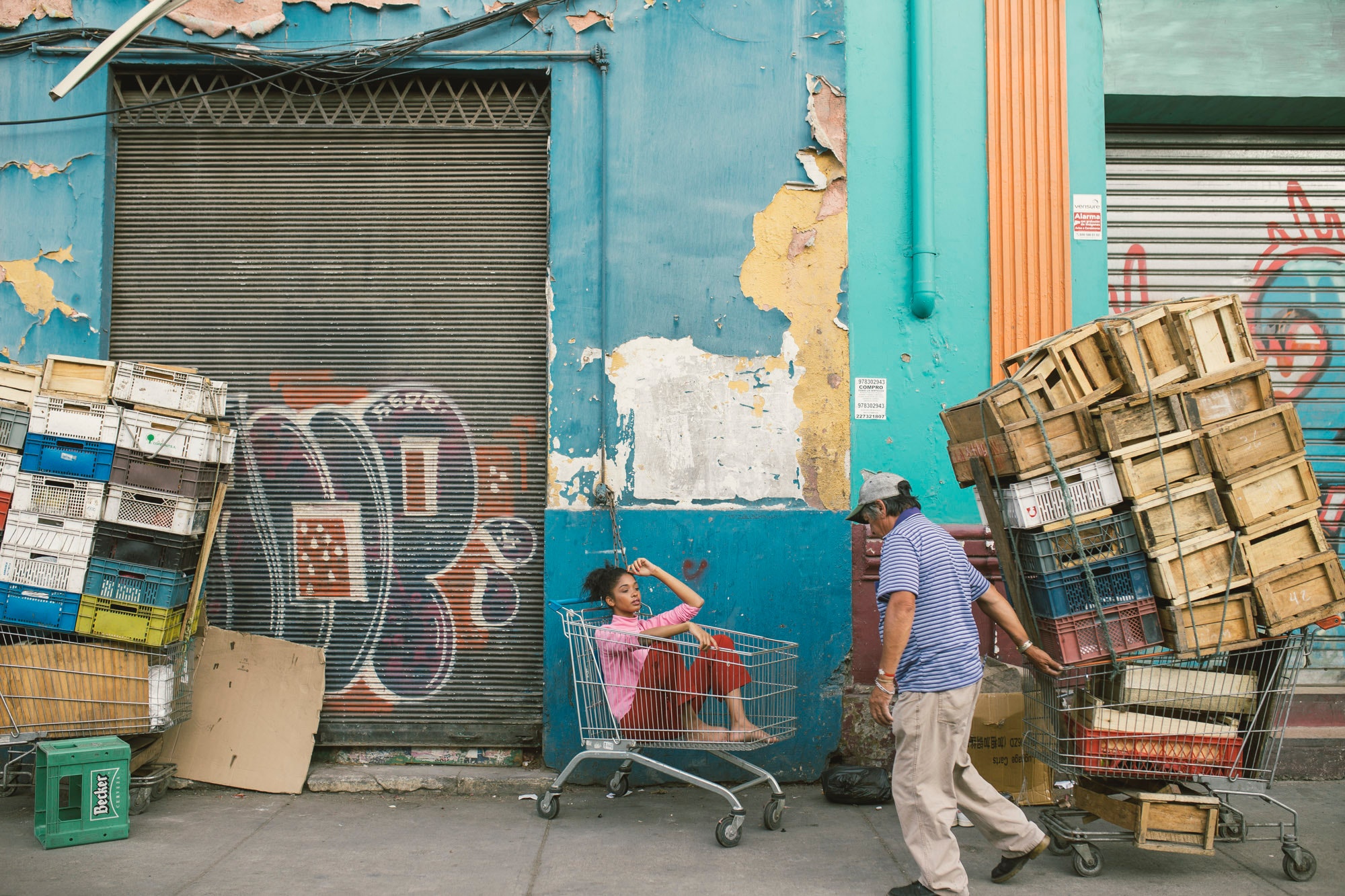Everyone in line at the coffeebar inside the superstore is hollow-eyed and at least halfway dead, shuffling step by step, clutching overstuffed single-use bags of retail bounty in one hand and a phone in the other. No one takes their eyes off their phone, not when the line inches forward, not even when the barista chirps to take their order: “What can I get started for you today?” They scroll and flip and click but never look away, and I get the sense that whatever is playing on their screens must be terribly important, important and personal, unique to them, because they’re watching with narcissistic compulsion, like their phone is showing them video of their own lives and they’re captivated by old nostalgias and filled with dread at the unexpected plot twists of their own futures.
Or maybe it’s just sports scores and Facebook.
The only reason I’m not looking at my phone is that both my hands are full. I discovered at some point I could buy groceries from the superstore, and I discovered at another point that the coffeebar inside the superstore used the same cash register system, and had a much quicker checkout line, and ever since, while the people around me order caramel lattes and double-tall iced whatevers, I’m here for the eggs and the bananas and the laundry detergent.
How many days has it been like this? This taste of battery acid in every inhale. How is it possible to walk through so many days as if the world is about to crack, to spend so many minutes of so many days just a breath away from screaming or crying or burning everything down without ever actually screaming or crying or burning anything down? This taste of failure.
“What can I get started for you today?” and I arrange my eggs and bananas and laundry detergent on the crowded counter, and the barista frowns because she knows my groceries in the coffeebar are some kind of social transgression but she also knows, like I know, that she won’t and can’t do anything to stop me.
I love grocery shopping. There’s comfort in the simple decision-making—salted or unsalted, chocolate or vanilla, chicken or beef—adult-shaped problems, the solving of which offers a buoyant high of success.
The buoyancy lasts, today, right up until the point that my credit card gets declined.
Do you remember the time we took our first trip to San Francisco? We stayed in a boutique hotel with foil wallpaper and murals of Madonna everywhere. I felt as towering as the skyscrapers around us, and when I took you out to dinner and we couldn’t decide what to eat, I ordered one of everything, enough food for a month. The waiter put our leftovers into all the plastic bags we could carry, and on our walk back to the hotel, we passed through a tent city and I left our food in front of the tents, quiet gifts for the people inside. Years later, you told me this was the night you fell in love with me, because of this act of kindness. But I didn’t do it out of kindness. I did it out of hope that when my time came, when my circumstances changed, when I was living in my tent city, someone might someday do the same for me.
—
Christopher DeWan is author of HOOPTY TIME MACHINES: fairy tales for grown ups, a collection of domestic fabulism from Atticus Books. He has published more than fifty stories in journals including Bodega, Gravel, Hobart, Passages North, and wigleaf. He works as a screenwriter and lives in Los Angeles.
This shortcode LP Profile only use on the page
Profile

